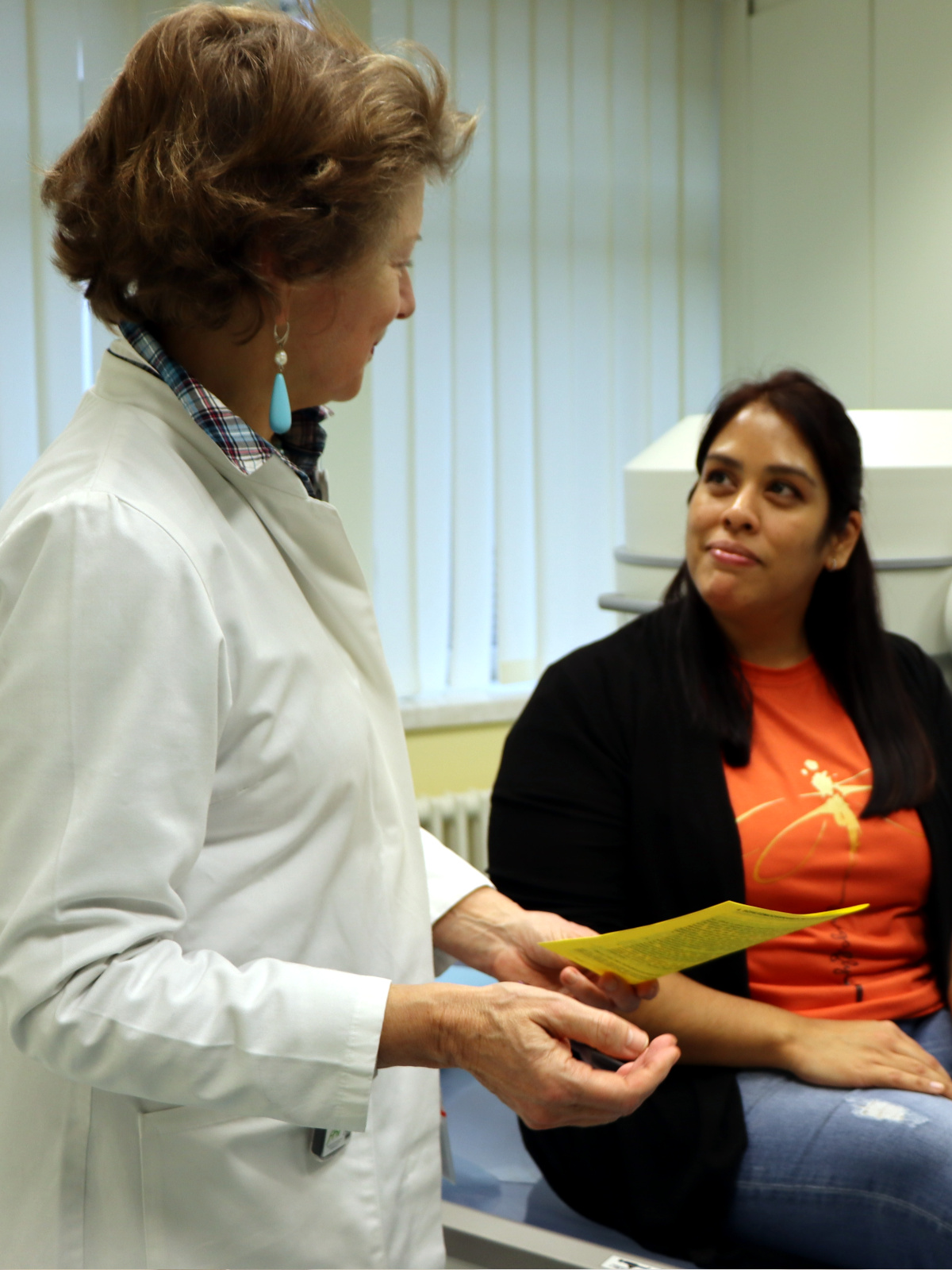Radioiodine therapy

Radioiodine therapy, also known as radioactive iodine therapy (RAI) or radioiodine ablation, is a medical treatment commonly used to treat certain thyroid conditions, particularly hyperthyroidism and thyroid cancer. In this therapy, a radioactive form of iodine, known as iodine-131 (I-131), is used to selectively destroy or ablate overactive thyroid tissue or thyroid cancer cells.
The following explains how radioiodine therapy works for various thyroid diseases:
Hyperthyroidism
Radioiodine therapy is often used as a definitive treatment for hyperthyroidism, which is usually caused by conditions such as Graves' disease or toxic multinodular goitre. In these cases, radioactive iodine is administered orally in the form of a capsule. The overactive thyroid cells absorb the radioactive iodine, which leads to their destruction, while the surrounding healthy tissue is spared. This contributes to the normalisation of thyroid function. In most cases, treatment can be carried out on an outpatient basis.
Thyroid cancer
Radioiodine therapy is also used in the treatment of thyroid cancer, particularly in patients with differentiated thyroid cancer (papillary and follicular type). After thyroid surgery to remove the cancerous tissue, radioiodine can be administered to destroy any remaining thyroid tissue or cancer cells.
Thyroid cells have a natural affinity for iodine, so remaining thyroid or cancer cells absorb the radioactive iodine. This type of treatment is carried out as an inpatient at the CHL.
